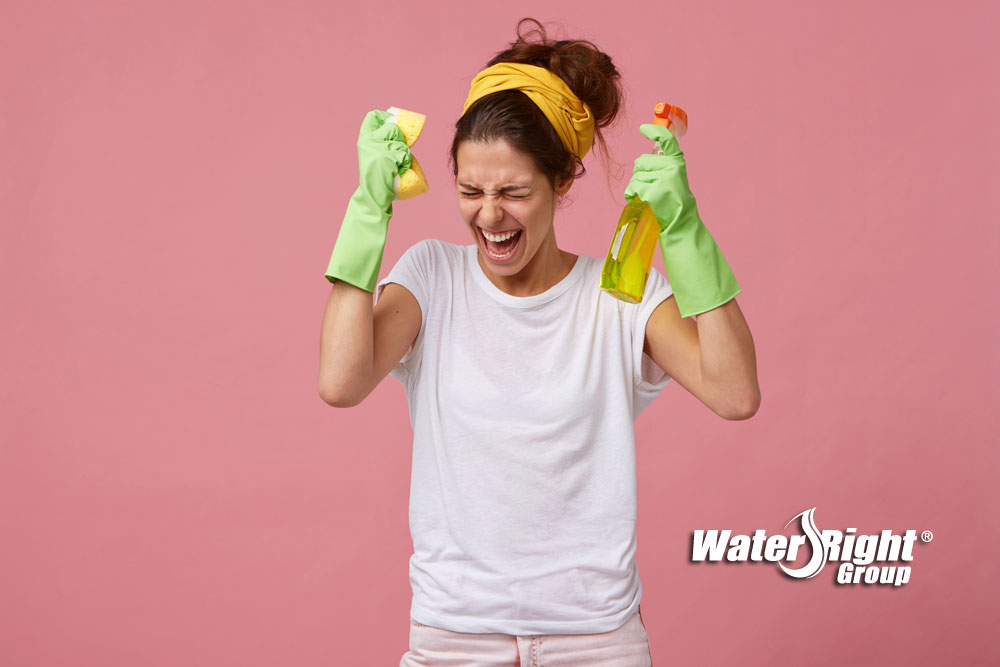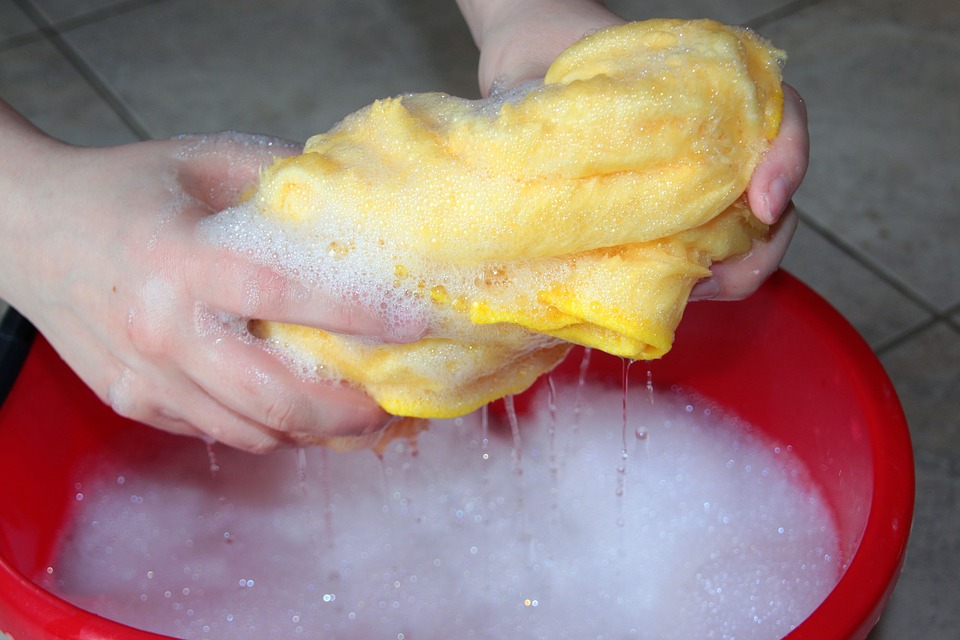
Is Hard Water Causing These 5 Housecleaning Headaches in Your Home?
When you have hard water, it can be difficult to keep your home sparkling clean. Hard water contains high levels of various minerals, including calcium and magnesium. As water runs over and through certain types of rock, it dissolves minerals, which remain in the water. These minerals react with soap to create a scummy residue that remains on surfaces after you clean.
Homes all over the country have different water quality issues, but hard water is one of the most common, and it causes housecleaning headaches. Here are five ways hard water makes it difficult to keep your house looking its best.
1. Soap Scum
When you live in a hard water area, keeping your bathroom tiles and fixtures clean can be a daily struggle. The problem is that the minerals in hard water react with soap to form a scum. When you clean your bathroom or kitchen with hard water and ordinary household cleaning products, this scum is left behind on faucets, on shower curtains and walls, in sinks, and in the bathtub. This can prevent you from ever achieving the sparkling clean look you see on cleaning product commercials.
2. Iron Stains
Calcium and magnesium are not the only minerals found in hard water. Depending on the geological features of your region, groundwater might also contain iron. Homeowners with wells often have high iron water. This can leave reddish-brown rust stains in the toilet bowl and around the drains of showers and sinks. Like other minerals, high iron water is not a health concern, but it is a nuisance.
In certain areas of the country, iron stains can be a serious housecleaning headache. Getting rid of these unsightly stains can be very difficult if you have an iron-rich water supply. Even if you can remove the stains, they’ll keep coming back until you address your home’s water quality with the right type of filtration.
3. Spotty Dishes
Hard water also causes problems with dish washing. If things come out of the dishwasher and they still look dirty, that could be hard water spots caused by mineral deposits. Imagine hosting a dinner party and all your wine glasses look filthy. That won’t impress the guests you invite to your home. Even if you are careful about rinsing your plates and glassware after you wash them, you might still notice unappealing spots and streaks remaining on their surfaces.
Exposing your dishes long term to high levels of hardness can even make them permanently cloudy. The minerals are abrasive and with etch the surface of glass and plastic over time.
4. Effects on Laundry
There’s no doubt that laundry is a much more challenging chore if your home has hard water. You might notice that your washing machine does not get your clothes completely clean. This is because the minerals in the water prevent laundry detergent from properly mixing with water, reducing cleaning power and leaving both detergent and minerals behind on fabrics.
If you wash your clothes in hard water, you might also notice that their colors quickly fade. Bright colors look duller than you expect, while whites do not look dingy. The same soap scum that resides on your bathroom fixtures when you have hard water can also build up on your clothes, making them look and feel less fabulous than they should.
Finally, you might notice that your towels and sheets feel hard and scratchy when they are freshly washed. Again, this is the fault of mineral buildup. The residue left on your towels not only makes them feel less fluffy but also reduces their absorbency.
5. Using More Cleaning Product
 Have you noticed that the amount of cleaning product that packaging instructions tell you to use is never enough to clean your home, dishes, or clothes? Many people with hard water find they have to use much more soaps and detergents in order to clean effectively. Over the years, this can add up to a lot of additional household spending on cleaning products.
Have you noticed that the amount of cleaning product that packaging instructions tell you to use is never enough to clean your home, dishes, or clothes? Many people with hard water find they have to use much more soaps and detergents in order to clean effectively. Over the years, this can add up to a lot of additional household spending on cleaning products.
Tests show that stained fabrics washed in soft water only need half as much detergent to get them clean, compared to washing the same fabrics in hard water. The same study found dishwashers need 30 percent less detergent when soft water is used. When your home’s water is soft, you can also get clothes clean by washing them at a lower temperature, which could reduce your household energy bill.
The Soft Water Solution
No one wants to spend more time cleaning the house than necessary, and there’s no sense spending money on extra cleaning products when a simple solution is available.
The best fix for hard water problems like these is a high-quality water softening system. Soft water is the ideal solution to hard water housecleaning headaches because it creates suds easily, helps avoid nasty soap scum, requires you to use less cleaning product, and can create sparkling glassware and softer, cleaner laundry.
But, you don’t want just any water softener, you need a softener that’s set up to treat the water quality in your home. Find a local expert who can test and analyze what’s in your home’s water.

